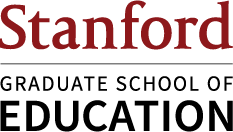Biography
Most Recent Book
My new book, “A Perfect Mess”, is an essay about the nature of the American system of higher education. From the perspective of 19th century visitors to the U.S., the American system of higher education was a joke. It wasn’t even a system. Underfunded, underwhelming in its dedication to learning, dispersed to the hinterlands, and lacking a compelling social function, the system seemed destined for deserved obscurity. But by the second half of the 20th century, the system had assumed a dominant position in the world market in higher education. It had the largest endowments, produced the most scholarship, earned the most Nobel prizes, attracted the most esteemed students and scholars, and thoroughly dominated the rankings of world universities. The question is how this happened. The answer is that the characteristics of the system that seemed disadvantages in the 19th century turned out to be advantages in the 20th century. Its modest state funding, dependence on student tuition and alumni donations, and independence from the church gave it a much greater degree of autonomy than institutions elsewhere in the world, which were largely dependent on the state. Operating as independent enterprises, American public and private colleges and universities learned to be highly entrepreneurial in seeking out sources of financial support and pursuing new opportunities. By making themselves accessible to educational consumers and useful in meeting social needs and in fulfilling individual ambitions, they developed a broad base of political support. This broad political and financial base, grounded in large and academically undemanding undergraduate programs, in turn provided support for cutting-edge research and advanced graduate study at the system’s pinnacle. As a result, American higher education managed to combine a unique mix of the populist, the practical, and the elite in a single complex system.
Professional Experience
- Lee L. Jacks Professor of Education, 2017 to present
- Chair, Area Committee in Social Sciences, Humanities, and Interdisciplinary Policy Studies in Education (SHIPS), 2009 to present
- Professor, School of Education, Stanford University, 2003 to present
- Professor (by courtesy), History Department, Stanford University, 2008 to present
- Associate Dean for Student Affairs, School of Education, Stanford University, 2005-2008
- Assistant Professor to Professor, Department of Teacher Education, Michigan State University (1985-2003)
- Coordinator of MSU Ph.D. program in Curriculum, Teaching, and Educational Policy (1996-2001).
Recent Roles in Professional Organizations
- President, History of Education Society (2004-2005)
- Vice president of Division F (History of Education), American Educational Research Association (2003-2006)
- Member, executive board, AERA (2004-2005).
Selected Recent Publications
A Perfect Mess: The Unlikely Ascendancy of American Higher Education (University of Chicago Press, 2017).
An affair to remember: America's brief fling with the university as a public good. (2016). Journal of Philosophy of Education, 50: 1, 20-36.
College – What is it good for? (2014). Education and Culture, 30: 1, 3-15.
Let’s measure what no one teaches: PISA, NCLB, and the shrinking aims of education. (2014). Teachers College Record, 116.
"Someone Has to Fail: The Zero-Sum Game of Public Schooling." (Harvard University Press, 2010).
"Consuming the Public School." Educational Theory ,(2011).
"Understanding the Rise of American Higher Education: How Complexity Breeds Autonomy." (translated into Chinese). Peking University Education Review (2010).
"What Schools Can't Do." Zeitschrift für Pädagogische Historiographie (2010).
"An Uneasy Relationship: The History of Teacher Education in the University." in Cochran-Smith et al. (Eds.), Handbook of Research on Teacher Education , 3rd ed. (Association of Teacher Educators, 2008)
"Mutual subversion: A short history of the liberal and the professional in American higher education." History of Education Quarterly (2006)
"The Trouble with Ed Schools"(Yale University Press, 2004)
"The Peculiar Problems of Preparing and Becoming Educational Researchers," Educational Researcher (2003)
"On the Nature of Teaching and Teacher Education: Difficult Practices that Look Easy," in Journal of Teacher Education (2000)
"Educational Researchers: Living with a Lesser Form of Knowledge," in Educational Researcher (1998)
"How to Succeed in School Without Really Learning: The Credentials Race in American Education" (Yale University Press, 1997)
